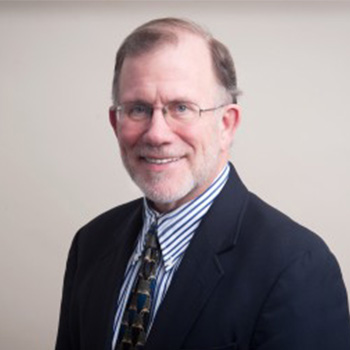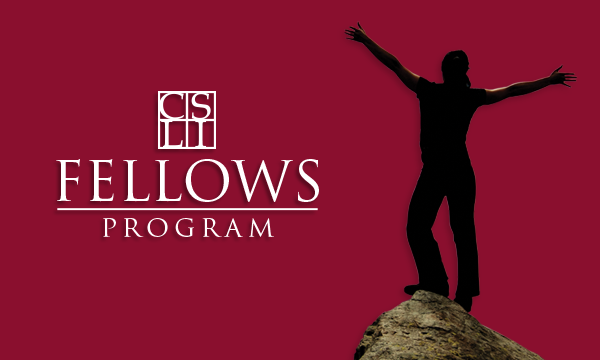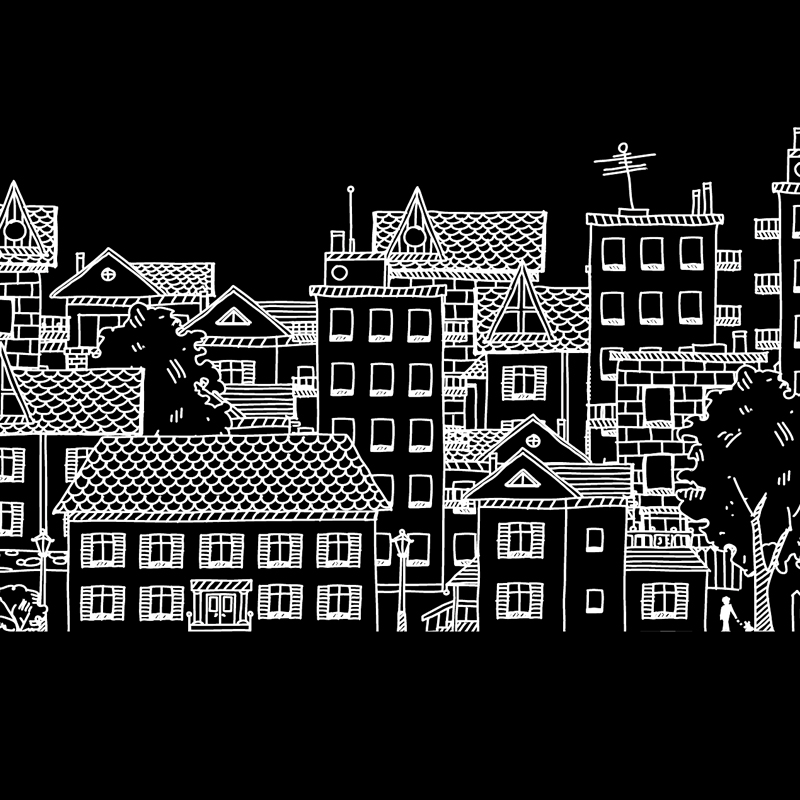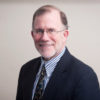Back to series



Faithful Living in Challenging Times
VOLUME 1 NUMBER 2 ISSUE OF BROADCAST TALKS (PDF)
BROADCAST TALKS presents ideas to cultivate Christ-like thinking and living. Each issue features a transcription of a talk presented at an event of The C. S. Lewis Institute. The following is adapted from a talk, What Now? Faithful Living in Challenging Times, delivered on October 23, 2015, Capitol Hill, Washington, D.C., sponsored by the C.S. Lewis Institute.
Our topic, “Faithful Living in Challenging Times,” has been a concern from the very beginning of time. It is not a new concern. As Adam may have said to Eve on their way out of the Garden of Eden, “We live, I am sure, in a time of great transition.” But many respected theologians and social scientists have observed that we are living in a unique time of significant transition in our culture and our society. You may ask, how so? I would suggest the following.

The public square in Western society is no longer a place where people of orthodox Christian faith can feel they belong with any degree of comfort. We live in a culture where ordinary moral reflection and conversation about human sexuality and traditional marriage is often seen as a form of bigotry.
In fact, in some places it is even seen as a “hate crime.” Any position other than the currently politically correct position on same-sex marriage is now met with surprise and disgust by almost everyone in our elite culture, as if one were defending racial segregation or slavery. Many of us who are defenders of historic Christian positions are seen by those in our elite cultures as curious strangers who are apparently speaking a foreign language from a distant land. I do not think it is melodramatic to say that our sincere beliefs and convictions as Christians are rapidly leading us into cultural exile and moving us to the margins of American life.
But is this really all that new, now? Have we not seen these rapid changes in our culture coming for several decades?
Twenty-four years ago, in 1991, an important book was published by James Davison Hunter, a sociologist at the University of Virginia, called Culture Wars. In it Hunter argued that we were in the midst of a cultural conflict between essentially two sectors in our society: those who hold to traditional Judeo-Christian moral values and those who adhere to a more liberal and progressive view of moral values and of religious faith. Hunter argued that our culture wars were the result of “political and social hostility rooted in different systems of moral understanding.” These involved “opposing bases of moral authority and the worldviews that derive from them.” Hunter suggested that these two groups were simply “worlds apart” in the way they saw not only moral issues but all of life. As people holding totally different worldviews, they engaged in these “moralities-in-conflict” as evidenced in what he described as a genuine culture war.
Hunter described them as the orthodox worldview and the progressive worldview: the orthodox believed that ultimate moral authority is “external, definable, and transcendent.” For progressives, “the binding moral authority tends to reside in personal experience or in scientific rationality…”As Hunter explained, members of orthodox America appealed to “definable” authority, while the progressive worldview relied on “conversations” in which various and multiple sources of authority would all have their say without any having the final word. This progressive countercultural worldview and project in 1991 was not to establish a new set of norms to replace the old; rather, it sought to create a society where people got along with as few rules as possible.
A man I was privileged to get to know in Washington many years ago through my work at the Ethics and Public Policy Center was the late Irving Kristol, a very widely respected Jewish public intellectual, held in high regard by seemingly everyone in Washington and New York for his astute opinions and observations.
Having just finished reading James Hunter’s book, I was bold enough to ask Mr. Kristol about our then-current culture war. (This was at an American Enterprise Institute conference where Kristol was the keynote speaker; again, this was almost twenty five years ago.) He said something I have never forgotten:
“Michael, there is not a culture war in America today. There was one, but it is over—and the other side won!” The other side had already won. I was a bit taken aback. He was echoing the views of his highly esteemed historian wife, Gertrude Himmelfarb, who in her important book One Nation, Two Cultures, said that America is confronting at least six challenges: “the collapse of ethical principles and habits, the loss of respect for authorities and institutions, the breakdown of the family, the decline of civility, the vulgarization of high culture, and the degradation of popular culture.”
 The Kristols were very wise observers, and what they suggested is that the many cultural trends we lament today were set in motion a very long time ago. But I suspect there is an even deeper dimension to be explored here, especially if we are to understand these challenges properly as Christians. Perhaps our mistake is in assuming that “we” ever “had” the culture to lose in the first place. Perhaps we misunderstand the relationship of the Christian faith to our culture when we do so.
The Kristols were very wise observers, and what they suggested is that the many cultural trends we lament today were set in motion a very long time ago. But I suspect there is an even deeper dimension to be explored here, especially if we are to understand these challenges properly as Christians. Perhaps our mistake is in assuming that “we” ever “had” the culture to lose in the first place. Perhaps we misunderstand the relationship of the Christian faith to our culture when we do so.
Before I suggest what I think our response should be, let me call your attention to one response that is getting a lot of attention presently. As you know, a growing number of Christian leaders are concerned that America is in 2015 beginning to look a lot like a declining empire.
The prolific writer and blogger Rod Dreher has introduced an approach to culture that he commends for Christians in these dark days: he calls it the Benedict Option. Saint Benedict was a fifth–sixth-century Roman saint and monk born around AD 480 in Nursia, Italy. When Benedict left Nursia and went to Rome, he found the city to be deeply degenerate and full of vice. Repelled by this, he retreated to the mountains, became a monk, led a monastery, and eventually wrote the “Benedict Rules.” This was a seventy-three chapter handbook on prayer and work that led to the founding of the Order of Saint Benedict, which became a group of monastic communities.
What does Rod Dreher mean when he calls Christians to consider the Benedict Option? Here is what he says:
The Benedict Option refers to Christians in the contemporary West who cease to identify the continuation of civility and moral community with the maintenance of the American Empire, and who therefore are keen to construct local forms of community as loci of Christian resistance against what the empire represents. Put grandly, the Benedict Option is an umbrella term for Christians…. To recognize that forming Christians who live out Christianity according to the Great Tradition requires embedding them within communities and institutions dedicated to that formation.
Dreher is reminding us that we live in a culture full of moral chaos and fragmentation, in which many important questions are simply impossible to settle. He has been deeply influenced by the imminent philosopher Alastair MacIntyre, who argues that we live in very dark times and that finding our way back to the straight paths will require establishing new forms of community that have as their ends a life of Christian virtue.
Here is MacIntyre’s assessment in the concluding passage of his important book After Virtue:
What matters now is the construction of local forms of community within which civility and the intellectual and moral life can be sustained through the new dark ages which are already upon us. And if the tradition of the virtues was able to survive the horrors of the last dark ages, we are not entirely without grounds for hope. This time however the barbarians are not waiting beyond the frontiers; they have already been governing us for quite some time. And it is our lack of consciousness of this that constitutes part of our current predicament. We are not waiting for Godot, but for another—doubtless very different—St. Benedict.
Rod Dreher says we are going to have to change the way we practice our faith and teach it to our children, and to build more resilient communities. Again, why? He says: “Some of us will live to see the day when orthodox Christians will be considered exotic antiques at best—and threats to decency at worst, potentially harmful individuals who must be driven out of public life.” He says he is not endorsing quietism or total withdrawal but simply trying to give us a realistic understanding of where we stand as Christians in the twenty-first century.
Again, why is he suggesting this? It should be obvious: the moral decadence of so much of our contemporary society clearly seems to indicate the waning influence of the Christian faith on American culture. So he is suggesting it is time to regroup, immerse ourselves in communities that share our values, develop more robust theologies, and become a beacon and a light to the dark shadows in our culture.
The great church historian and patristics scholar Robert Louis Wilken put it this way:
Nothing is more needful today than the survival of Christian culture, because in recent generations this culture has become dangerously thin. At this moment in the Church’s history in this country it is less urgent to convince the alternative culture in which we live of the truth of Christ than it is for the Church to tell itself its own story and to nurture its own life....
This is not going to happen without a rebirth of moral and spiritual discipline and a resolute effort on the part of Christians to comprehend and to defend the remnants of Christian culture. The unhappy fact is that the society in which we live is no longer neutral about Christianity.
Put simply: Christians in today’s society are no longer the moral majority but clearly are now a moral minority. So one of the important questions we must ask ourselves is this: what must we as Christians do in order to live faithfully as a minority in a culture in which we were once considered the majority?
As for me, I have respect for Rod Dreher, and I concur with his plea that we need to form strong Christian communities rooted in deep discipleship. But I feel this need not be an either/or proposition. My concern is that those who follow the Benedict Option and create sealed-off Christian communities may well find themselves sealed off from having any influence in the worlds of the media, the arts, science, and literature and, yes, even politics—in other words, sealed off from crucial areas shaped by meaningful public influence and conversation. There is certainly room for lament when looking at the condition of the modern world, but in this scenario the ability of the larger church to offer its prophetic voice to the culture would continue to be weakened.
I believe the best guide for rethinking our relationship to society and culture in the challenging contemporary culture is St. Augustine. Indeed, I want to argue that what we need is an “Augustinian sensibility” if we are to rightly discern what we as Christians, should and should not, aspire to do in our private and public witness. Perhaps I should call this the “Augustinian Option.” Augustine offers us insights into the possibilities but also the limits of our current human condition.
 In his classic book, The City of God, Augustine makes a very radical claim: he says the “City of Man,” meaning this “world and this culture” is always at odds with the City of God. Because we presently live between these two cities, we can never really claim to have ever “won the culture.” That understanding—that commitment to the future City of God—should always be operating in the back of our minds as we seek to be faithful citizens in this broken world, doing the best we can with the broken instruments with which we work. This does not mean we cease to love and care for this earthly city and for the welfare of our fellow image-bearers. But I am suggesting that this Augustinian view, this “Augustinian sensibility,” will give us a more realistic approach to the challenges we face in our culture, in our various vocations and in our callings.
In his classic book, The City of God, Augustine makes a very radical claim: he says the “City of Man,” meaning this “world and this culture” is always at odds with the City of God. Because we presently live between these two cities, we can never really claim to have ever “won the culture.” That understanding—that commitment to the future City of God—should always be operating in the back of our minds as we seek to be faithful citizens in this broken world, doing the best we can with the broken instruments with which we work. This does not mean we cease to love and care for this earthly city and for the welfare of our fellow image-bearers. But I am suggesting that this Augustinian view, this “Augustinian sensibility,” will give us a more realistic approach to the challenges we face in our culture, in our various vocations and in our callings.
This Augustinian sensibility will keep us realistic about our goals and our expectations and will keep us from having the mentality of an embattled minority—a pattern that has been prevalent among some of our fellow brothers and sisters in the recent past.
So, what are we to be doing now?
Listen to these words from Jeremiah 29:4–7 (ESV):
Thus says the LORD of hosts, the God of Israel, to all the exiles whom I have sent into exile from Jerusalem to Babylon: “Build houses and live in them; plant gardens and eat their produce…. Take wives for your sons, and give your daughters in marriage, that they may bear sons and daughters; multiply there, and do not decrease. But seek the welfare of the city where I have sent you into exile, and pray to the LORD on its behalf, for in its welfare you will find your welfare.”
We are to do what have always been commanded to do: build houses, raise families, plant gardens, and produce good art, good music, and good culture. We are to seek justice, love mercy, care for the least of these, and love our neighbors.
One important form of neighbor love is to treat everyone, friend and foe alike, no matter their status or their station in life, with respect and dignity as we go about our daily lives and vocations. The late Richard John Neuhaus said it well: it is our duty to strive to build a world in which the strong are just, and power is tempered by mercy, in which the weak are nurtured and the marginal embraced, and to see to it that those at the entrance gates and those at the exit gates of life are protected both by law and by love.
As the text in Jeremiah suggests, we live in a time of exile. As Christians we are, according to Augustine, a people out of place. In this brief life short of the promised kingdom of God, we are resident alien citizens. As resident aliens, we are commanded by the apostle Paul in Romans 12:2 (ESV) to “not be conformed to this world, but be transformed by the renewal of your mind, that by testing you may discern what is the will of God, what is good and acceptable and perfect.”
Parenthetically, this is why the work of the C.S. Lewis Institute is so important: it promotes the renewing of our minds so that we rightly discern the will of God and know what is good and true and beautiful in the sight of God. For many of us who lead busy work lives, the opportunity to keep growing spiritually and theologically through the Institute’s lay theological education programs is vital. We need to stay constantly on the growing edge as Christian believers. Living in exile demands that we have a clear identity concerning who we are as Christians. To retain our identities, we need to be part of a vibrant community of “lifelong learners” who know what we believe and why we believe it. And the Institute fulfills Flannery O’Connor’s famous dictum that we need institutions that push back as hard against the world as the world pushes against us.
The Institute prepares us to be strong and faithful when we are confronted by the hostile worldviews and false gospels of the world. As we live and move and have our being in the contemporary world, we need to have confidence in our identities and in our destinies as Christians. As my friend Russell Moore of the Southern Baptist Convention has recently put it: “Our views will more and more come to be seen as ‘strange’ and ‘freakish’ in the current cultural climate.” Hence our need to be clear, crystal clear, about what we believe and why we believe it.
Again, this is another reason why the work of the Institute is so important: instead of complaining about the culture, we need to continually work to get our own lives and our own communities in order—hence the need for your good endeavors to show forth the beauty of the good news of the gospel in an age that so desperately needs to hear Good News.
I am convinced that having an “Augustinian sensibility” will give us spiritual and emotional balance as we remind ourselves that we now live at the intersection of the ages, between the City of Man and the City of God that is to come. Living our lives at the intersection between the City of Man and the City of God means that we develop what one great sociologist, John Murray Cuddihy, called “an esthetic for the interim.” This is a way of looking at life with an awareness that we are living “between the times.” Therefore we are encouraged to exercise patience and put a ban on all ostentation and triumphalism. As Christians in this sometimes awkward duality of our earthly citizenship, we are called to be faithful in these times not of our own choosing. But this is our time, this is our place, and this is our time of testing and challenge.
In these kinds of times, it is critical that we remind ourselves of the importance of civility in our public discourse and presentations with the wider public. Here I am concerned with our tone of voice when we write and speak in public. What we say in public matters. Words matter. Being a person who speaks in a civil tone and in a civil manner is a virtue. Practicing civility is a virtue. And for all the high-strung activists on both the political Right and the Left, I would remind them that being civil is not a cop-out, an effort to trim one’s convictions. Civility is not a wimp word. The American religious historian Martin Marty put it this way: “People who are civil often lack conviction and people with strong convictions often lack civility. What we need today are people who practice ‘convicted civility.’ ”
Civility is not just a matter of good manners and pulling our punches. Civility and kindness do not mean passivity. It is instead a matter of showing fundamental respect and decency for the people we are engaging in the public arena. In order to be persuasive, even with firmly held convictions, we must resist the temptations to respond in an emotive fashion and instead respond in ways that are winsome and appealing. We have no reason to be fearful or sullen or mean-spirited.
Why do I emphasize this? Because I could give you illustrations of people I have known over the years in the Christian community who are not taken seriously because of the tone of their voice, their words, and their very body language. We have a duty to be respectful to those we disagree with in the public arena. It is, quite simply, the will of God that we not kill each other over our differences concerning what the will of God is.
Put simply: we must speak with confidence and tranquility, with kindness and gentleness, so that people will begin to say of us that we speak with a “Galilean” accent that sounds a lot like Jesus.
I began by noting that many important commentators are saying we are living in a time of “great transition.” I want to conclude by suggesting that this “time of transition” is really the very nature of our lives in our earthly existence. We are always living in a time of transition. And so we are today. We have this tendency to see our era as the worst era in all of history. Times may be growing dark—but times have been dark since the Fall in the Garden of Eden. We are not, and will not, be the losers in history. The arc of history is long, but we know with confidence how it ends.
And so there is comfort in the midst of all this transition: the central doctrines of the sovereignty of God and the providence of God over all of life, and over all of history and where it is going, should give us confidence that the principalities and powers of this age will not have the final word.
And so for those of us whose primary allegiance is to the City of God, we do well to remember that every homeland is a foreign country and every foreign country is a homeland. We are to seek the welfare of the city, as Jeremiah says, because in its welfare we will also find our welfare.
This is our place of pilgrimage at this time until the future City of God comes. Until we reach that final destination, we must learn how to sing the songs of Zion in this our foreign land.
And therefore let’s continue to love our neighbors right where we are–in our work places, in our businesses, in all areas of life, and let’s ride out this cultural moment in the full confidence that God is the sovereign Lord of history and all of history is in His hands. Our task is to bless our neighbors, cultivate Shalom, and continue to remind people of the wonderful news of the gospel (especially since we will need to be poised to receive the wounded who will be the inevitable victims of our current cultural malaise and dysfunctions).
Let us continue to keep doing all the good we can, in all the many ways we can, confident in our strong faith in our loving and merciful God. Knowing this will keep us from panicking; it will keep us from screaming, from freaking out, or from caving in to the pressures that surround us on every side.
And so we must do our various duties faithfully while living in exile, fully aware and confident that the final consummation of history and true justice will come with the restoration of the entire universe to its original, created glory.
So let’s continue to faithfully do our duties, even while in exile.


Michael Cromartie
CommissionerMichael Cromartie, Commissioner, (1950 - 2017) served as Vice President of the Ethics and Public Policy Center, where he directed both the Evangelicals in Civic Life and Faith Angle Forum programs. His area of expertise included issues at the cross-section of religion and politics. He was also an advisory editor of Christianity Today magazine, a senior advisor to the Pew Forum on Religion and Public Life and a senior fellow with The Trinity Forum. Mr. Cromartie was a graduate of Covenant College in Georgia, and held an M.A. in Justice from The American University in Washington, D.C. On September 20, 2004, President George W. Bush appointed him to a six-year term on the U.S. Commission on International Religious Freedom.

 COPYRIGHT: This publication is published by C.S. Lewis Institute; 8001 Braddock Road, Suite 301; Springfield, VA 22151. Portions of the publication may be reproduced for noncommercial, local church or ministry use without prior permission. Electronic copies of the PDF files may be duplicated and transmitted via e-mail for personal and church use. Articles may not be modified without prior written permission of the Institute. For questions, contact the Institute: 703.914.5602 or email us.
COPYRIGHT: This publication is published by C.S. Lewis Institute; 8001 Braddock Road, Suite 301; Springfield, VA 22151. Portions of the publication may be reproduced for noncommercial, local church or ministry use without prior permission. Electronic copies of the PDF files may be duplicated and transmitted via e-mail for personal and church use. Articles may not be modified without prior written permission of the Institute. For questions, contact the Institute: 703.914.5602 or email us.
-
Recent Podcasts
Hyper-Realist Finds Faith – Spencer Durrenberger’s Story
by Spencer Durrenberger on December 20, 2024Former atheist Spencer Durrenberger grew up in an...Read More
-
First Steps to Loving and Understanding Our Jewish Neighbors
by Aimee Riegert, Randy Newman on December 13, 2024
-
Reasons for God – Dr. Kathleen Noller’s Story
by Jana Harmon, Kathleen Noller on December 6, 2024
-
Recent Publications
How Artists and Their Art Can Point Us to the Creator
by Russ Ramsey on December 2, 2024"... if you say that you want to...Read More
-
What about Jesus’s Childhood?
by Jim Phillips on December 1, 2024
-
Will You Be Ready?
by Thomas A. Tarrants on October 23, 2024
0
All Booked
0.00
All Booked
0.00
All Booked
23903
Fellows Program – Applications Available on February 1st!
https://www.cslewisinstitute.org/?event=fellows-program-applications-available-on-february-1st&event_date=2025-02-01®=1
https://www.paypal.com/cgi-bin/webscr
2025-02-01

Next coming event
Days
Hours
Minutes
Seconds
Fellows Program – Applications Available on February 1st!
On February 1, 2025 at 7:00 amCategories
Tags
Speakers

Michael Cromartie
Commissioner
Team Members

Michael Cromartie
CommissionerMichael Cromartie, Commissioner, (1950 - 2017) served as Vice President of the Ethics and Public Policy Center, where he directed both the Evangelicals in Civic Life and Faith Angle Forum programs. His area of expertise included issues at the cross-section of religion and politics. He was also an advisory editor of Christianity Today magazine, a senior advisor to the Pew Forum on Religion and Public Life and a senior fellow with The Trinity Forum. Mr. Cromartie was a graduate of Covenant College in Georgia, and held an M.A. in Justice from The American University in Washington, D.C. On September 20, 2004, President George W. Bush appointed him to a six-year term on the U.S. Commission on International Religious Freedom.





